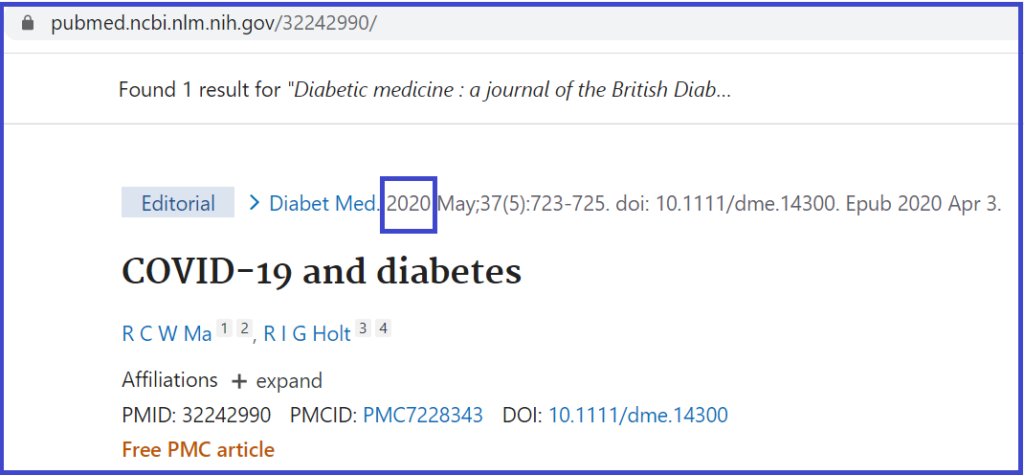The New PubMed was launched late last year (2019). It became the default in May 2020. The old PubMed (now called the legacy PubMed) is still available at https://pmlegacy.ncbi.nlm.nih.gov/ and is likely to be available till at least end Sep 2020.
Many people want to know how the new PubMed is different – apart from the look and feel, of course. Here we demonstrate one important change in the way technology works:
The Single Citation Matcher:
The job of this tool is to help you find an item in PubMed, in case you do not have the full bibliographic details, or you have them with one or more errors. Let us take example: you attended an event where the speaker put in this reference to support some matter in a slide:
Ma RCW, Holt RIG. COVID-19 and diabetes. Diabet Med. 2019;37(5):723-725.
Go to the Single Citation Matcher in the Legacy PubMed – https://pmlegacy.ncbi.nlm.nih.gov/pubmed/citmatch and type in the above details in the respective boxes as shown in the figure below (For the journal title, you can just type the abbreviation Diabet Med – and a drop down will show you the full title; you can select it)

Click Search and you get a message – “Search results – Items – 0, No documents match your search terms” (see figure below)

Try the same exercise in the New PubMed’s Single Citation Matcher – https://www.ncbi.nlm.nih.gov/pubmed/citmatch/ and note what happens:

The error in the citation we got from the presenter – was the year – 2019. How did the new PubMed figure out that this article was from the year 2020?
The PubMed search engine in the new PubMed, when it figures there are 0 results with whatever we searched, quickly tries out different combinations, by eliminating each bibliographic item. When it eliminated the year and kept the other items, this result emerged, with a correction for the year. The old PubMed was programmed to only search the exact terms that users put in
We do not get to see the processes behind and it all happens very quickly!
To learn the New PubMed do register for our online courses


